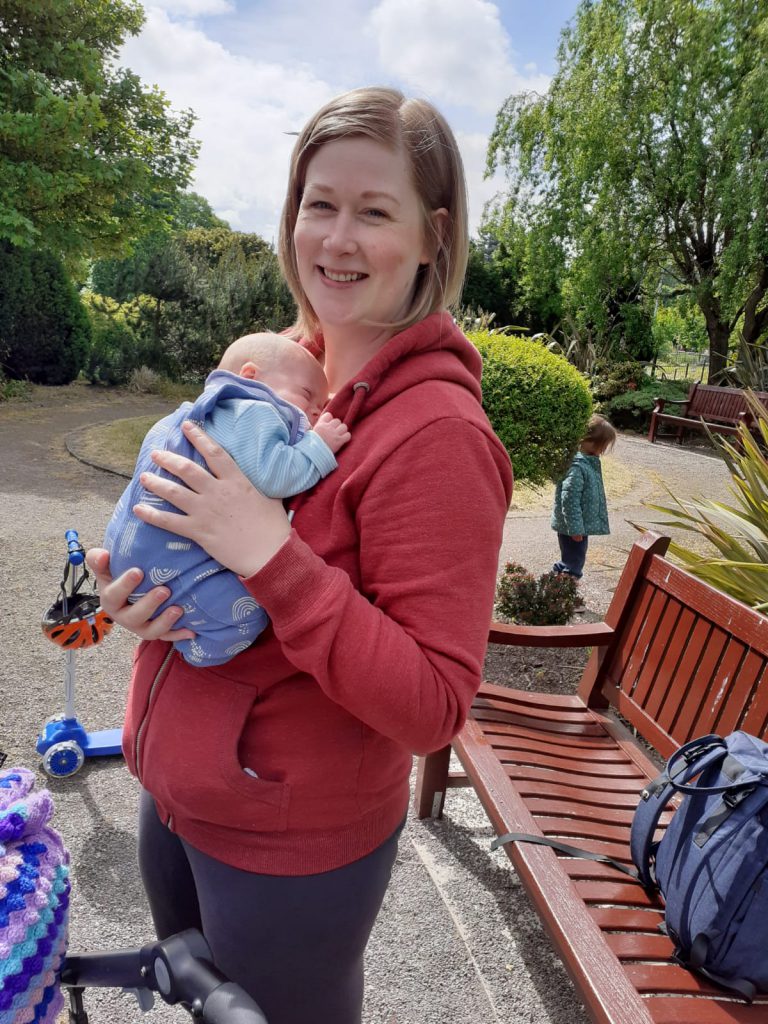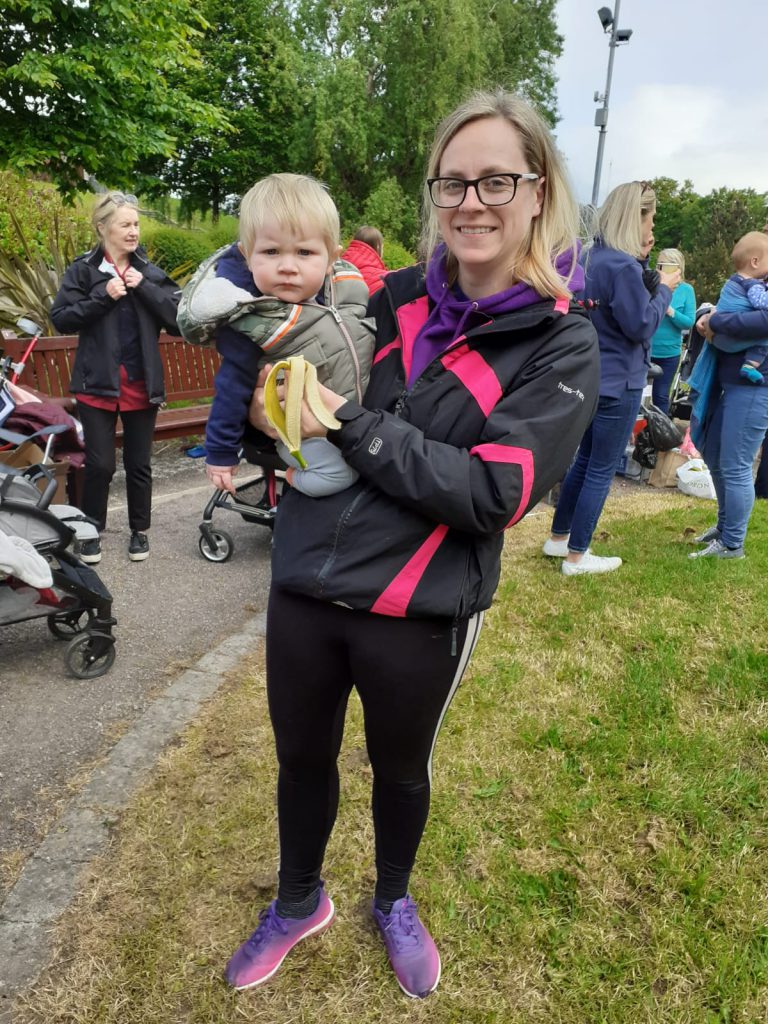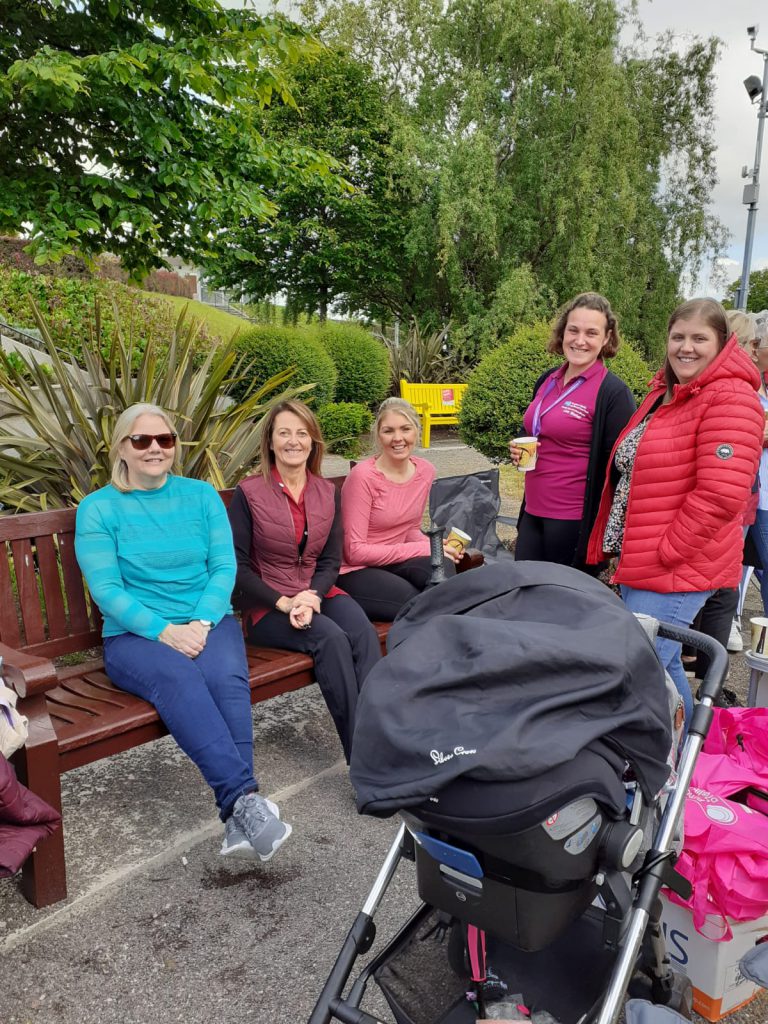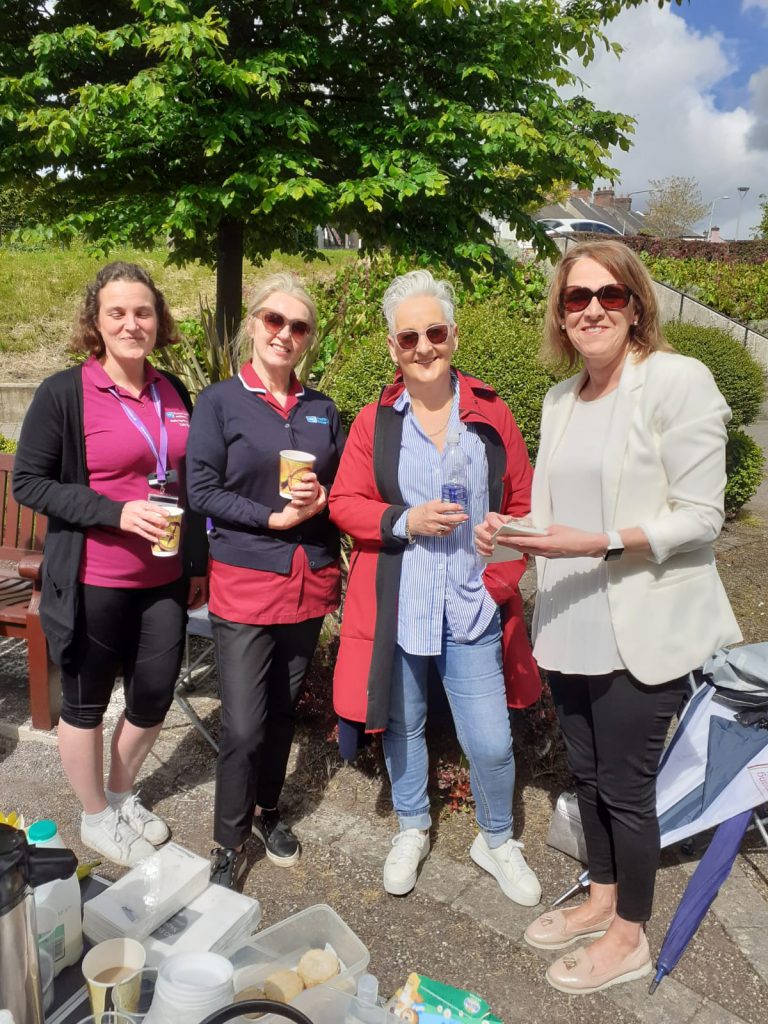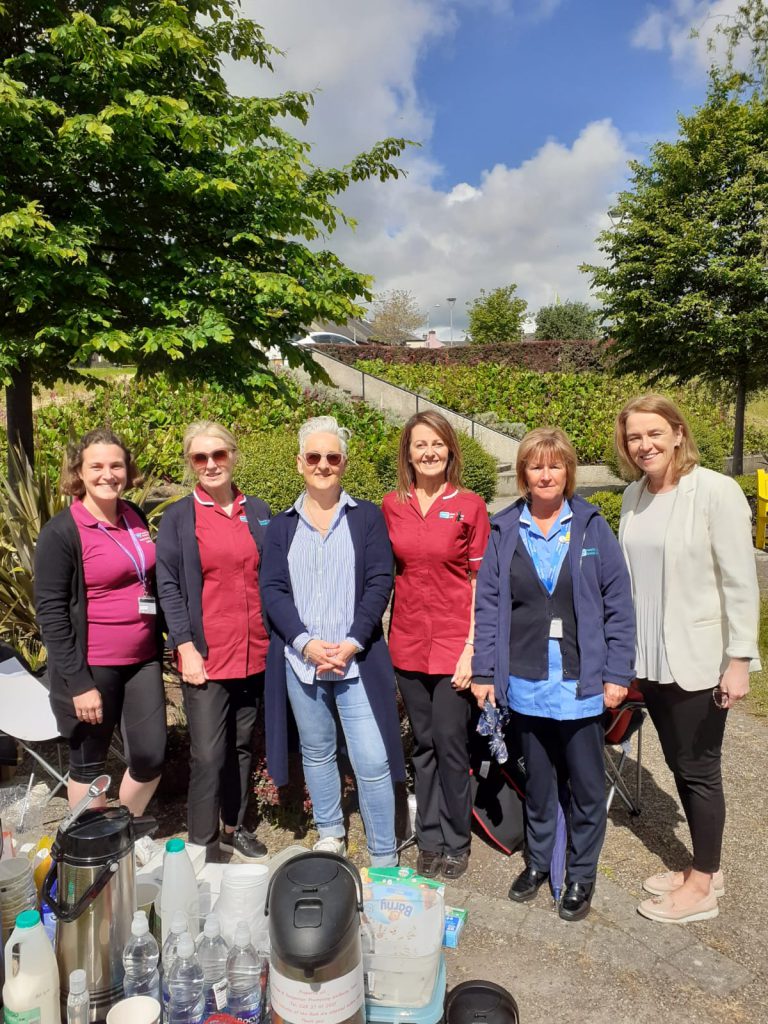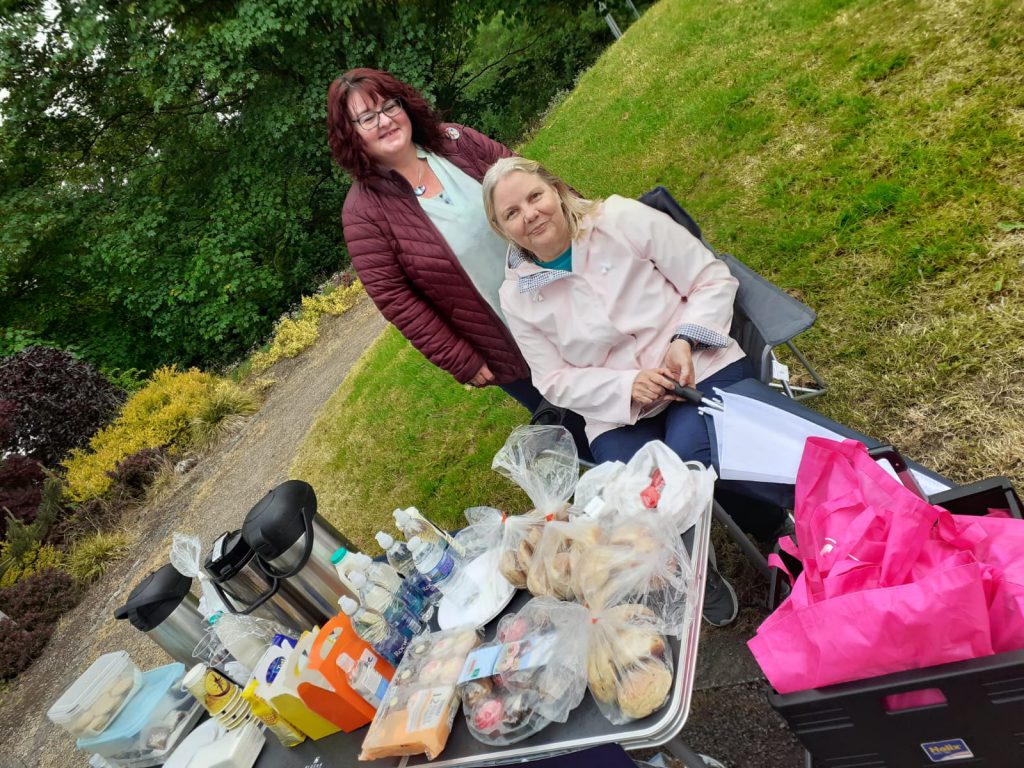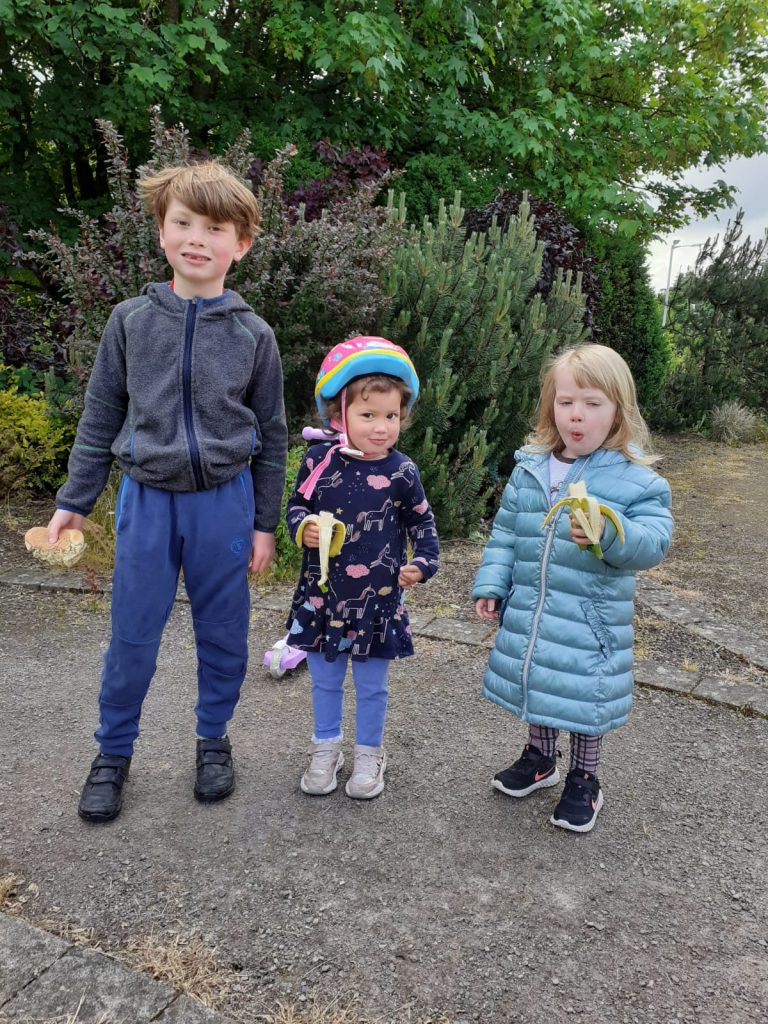27th June 2022
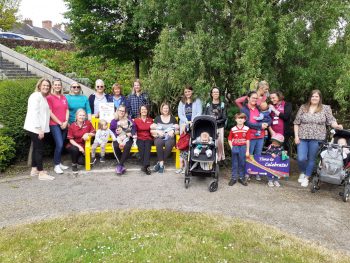
A celebration event has been held to thank our volunteers who work as Breastfeeding Peer Support workers.
The Picnic in the Park celebration was for those existing volunteers who continued their volunteering throughout lockdown supporting breastfeeding mothers, and for our two recent cohorts of volunteers who have just completed their training over the past few months.
Breastfeeding Peer support volunteers are local mums who have breastfed their own children and who, with specialised training encourage and support other new mums.
New mums, with consent can be linked with a Peer mum as soon as leaving hospital and they can call them for support or advice over the phone or if necessary, they can organise to meet.
By sharing their own skills and experiences, Peer mums can help Breastfeeding mothers to overcome many problems with breastfeeding and encourage them to discuss any concerns they may have. Breastfeeding Peer Support alongside health professionals and support groups is evidenced as the effective way to support mothers to continue breastfeeding.
Sandra Hewitt, Breastfeeding co-ordinator: “This is the first time in a few years that we have been able to come together and celebrate our Peer Support volunteers and it was timely that it happened during Volunteer week.
“We were absolutely delighted to welcome everyone to promote breastfeeding and help us ensure that babies get the best start in life.
“Currently we have 18 volunteers and are keen to train another group in the autumn,” added Sandra.
Orlaith Moley, Health and Social Wellbeing Improvement Senior Officer at the PHA said: “I was delighted to attend the Picnic in the Park celebration for the existing breastfeeding peer support volunteers and the newly trained cohort of volunteers who make such a valuable contribution to support breastfeeding mothers to sustain breastfeeding for longer through their peer support activities in the community. Making it easier for mums to choose breastfeeding will help improve breastfeeding rates in Northern Ireland. Scientific evidence shows that babies who are breastfed are generally at a lower risk of having infections, allergies, obesity, diabetes and sudden infant death. Women who breastfeed can also have a lower risk of developing breast cancer, ovarian cancer and osteoporosis.”
Among those in attendance at the event were volunteers (existing volunteers & newly trained volunteers), peer mentors (who are health visitors/midwives), link worker (Alicia Lappin), Sandra Hewitt & Ruth McGowan, as well Kate Johnston & Katrina Lavery (Volunteer Coordinators).
See also www.breastfedbabies.org for additional information on breastfeeding and the Public Health Agency ‘Breastfeeding Welcome Here’ Scheme, which encourages businesses and public facilities to support and welcome breastfeeding families.





